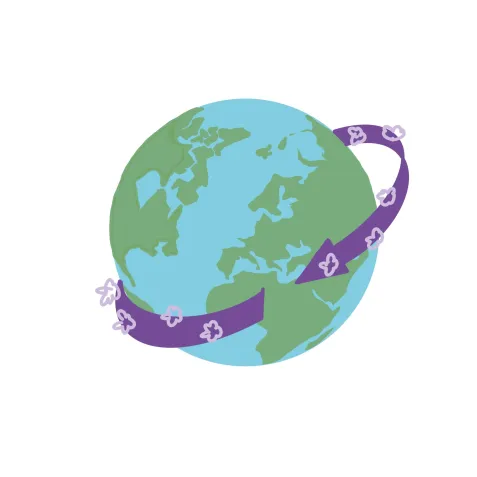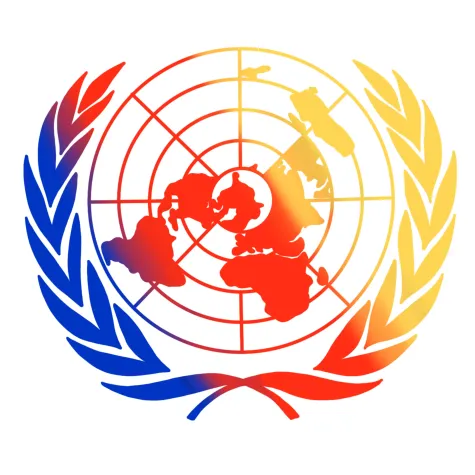While the term “genocide” was conceived by Raphael Lemkin in 1944, the story of possible genocides in human history starts hundreds of years before. The actions of colonial powers, such as Britain and Spain, is often classified as genocide by historians. European colonization of lands and people like the Americas, Australia, Africa and Asia was based on the innate belief of superiority to indigenous people, and their privilege to take already inhabited land. European colonization not only involved stealing land, but also the practice of forced labor; for example, the Spanish American colonies initially relied on the encomienda system, where Spaniards were granted legal rights to force labor from indigenous people. In seizing native lands, European colonists killed thousands of indigenous people in the Americas, Africa, Asia, and Australia, both through intentional warfare and disease. Because of the factor of disease as a big part of these deaths and questionable European intentions, the designation of these colonizations as genocides is sometimes controversial; however, they clearly fit Lemkin’s definition of genocideas the destruction of a nation or ethnic group.
The realization of genocide as a global crime came into play just one year after the start of World War I, when the Allies of World War I set a letter to the Ottoman Empire in protest of its continued genocides. Among these are the Armenian, Assyrian and Greek genocides. The systematic killing of the Armenian people, the Assyrian and Seriac Christians, and the Christian Greek population in the Ottoman empire was seen as a global crime against humanity. The Holocaust happened just decades later during World War II, when millions of Jews were systematically murdered by the Nazi regime. These events demonstrated the growing danger of nationalism and propaganda in the twentieth century, a theme that would come to define later events.
The cold war era, a time of rising global tensions and newfound power in many countries, also saw brutal instances of genocide. The partition of India occurred after the end of the British Indian Empire, creating the states of India and Pakistan. During this time, Hindus, Muslims, and Sikhs, who had lived together for millenia, unleashed a period of brutal violence directed towards each other, which ended with millions of people missing and killed. The Cambodian genocide occurred during the Khmer Rouge regime led by leader Pol Pot, who targeted people he thought would be unloyal to his agrarian socialist ideals, as well as ethnic minorities, intellectuals, and urban citizens. On the other extreme of the cold war, the Indonesian mass killings of 1965-1966 began as an anti-communist purge that killed hundreds of thousands of people suspected to have leftist ideals. These are just a few of many injustices committed by governments and states during this time, when political tensions and upheaval blinded a capacity for human rights.
During the Rwandan genocide of 1994, occuring during the Rwandan Civil War, hundreds of thousands of people in the Tutsi minority ethnic group were murdered. This event created a worldwide shift in discussion of genocide prevention, leading to alliances like the African Union and greater work in genocide prevention. The establishment of Genocide Watch in 1999, a non-governmental organization, works to prevent future genocides.
While cruelty and mass injustice will always be a part of human history and are not quite a thing of the past, they are worth remembering in order to create a better future.
Sources:
“Genocide.” History.Com, A&E Television Networks, www.history.com/topics/holocaust/what-is-genocide. Accessed 23 Nov. 2023.
Wolfe, Patrick. “Settler colonialism and the elimination of the Native.” Journal of Genocide Research, vol. 8, no. 4, 2006, pp. 387–409, https://doi.org/10.1080/14623520601056240.
Tusan, Michelle. “‘Crimes against Humanity’: Human Rights, the British Empire, and the Origins of the Response to the Armenian Genocide.” The American Historical Review, vol. 119, no. 1, 2014, pp. 47–77. JSTOR, http://www.jstor.org/stable/23784413. Accessed 23 Nov. 2023.
Davis, Kingsley. “India and Pakistan: The Demography of Partition.” Pacific Affairs, vol. 22, no. 3, 1949, pp. 254–64. JSTOR, https://doi.org/10.2307/2751797. Accessed 23 Nov. 2023.
Bulliet, Richard W., et al. The Earth and Its Peoples: A Global History. Cengage Learning, Inc., 2019.
Scheffer, David. “Lessons from the Rwandan Genocide.” Georgetown Journal of International Affairs, vol. 5, no. 2, 2004, pp. 125–32. JSTOR, http://www.jstor.org/stable/43134297. Accessed 23 Nov. 2023.
“Genocide Watch- Our Mission.” Genocidewatch, www.genocidewatch.com/copy-of-about-us. Accessed 23 Nov. 2023.
Written by Emily Chen Edited by Grace Yang

 A Comparison Between the First and Second Armenian Genocide
A Comparison Between the First and Second Armenian Genocide